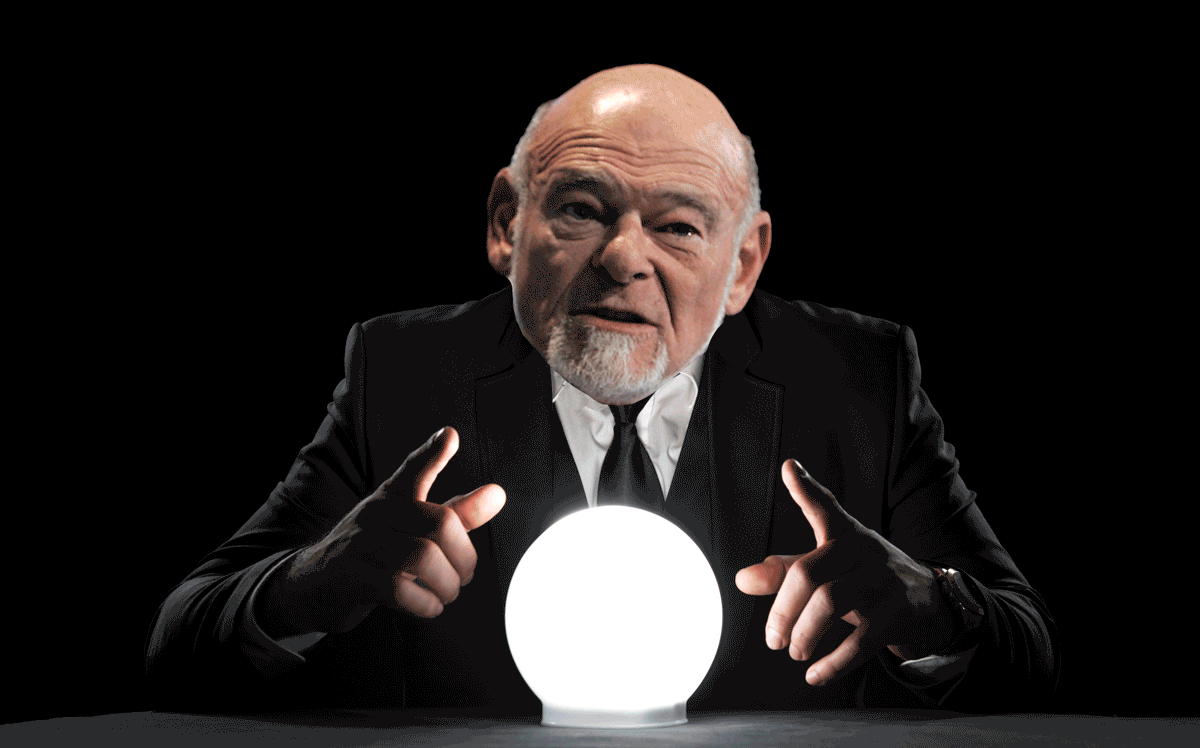When the markets begin to melt, people usually look to see what Sam Zell is up to.
The billionaire real estate investor made his fortune and reputation by acquiring distressed assets on the cheap and disposing of properties at the zenith of the market. He sold Blackstone Group the Equity Office portfolio for $39 billion in 2006, the largest-ever leveraged buyout at the time. In 2012, he bought the 45,000-unit Archstone multifamily portfolio for $16 billion (including debt) from Lehman Brothers, paying $6 billion less than Lehman did back in 2007.
Many expected Zell to pounce on the current situation, with so many players losing their shirts. But unlike in past crises, he’s yet to see an opening in this one.
“There’s very little opportunity to do anything,” Zell said, in a candid conversation with Bloomberg Tuesday. “Everybody is in a deer in the headlights kind of state.”
Zell noted there’s been “very little opportunity at price discovery.” Sellers, he said, are still operating using comps from eight weeks ago, when the global markets were still intact, while buyers expect fat discounts given the situation.
“When you’ve got that big a spread, nothing happens,” he said.
Sitting in a room filled with scale models and books about motorcycles — Zell is an avid rider and aware that the press eats that up, once telling Blackstone’s Jon Gray that it was important to have a “hook” — Zell saved his most dire prognosis for the retail industry, which others have warned is on the brink of systemic collapse.
(Related: Watch: Fifth Wall’s Brendan Wallace on the need for a retail bailout)
The anchor, Erik Schatzker, asked if shuttered retail stores in prime corridors would still have some inherent value, or if they would become “what the residential blocks in Detroit and Cleveland became after the financial crisis.” Zell said he couldn’t say for sure, as social distancing had fundamentally changed the value of retail space.
“Retail always had the best corners,” he said. “Well, the best corners are defined as where the traffic is. But if the overall level of traffic diminishes, then the definition of best corners doesn’t sound quite the same way.” Zell also expressed concern for the hotel sector, predicting that “we’ll see a lot of hotels that basically can’t reopen” given the high costs of doing so and the lower demand.
“We were already beginning to see oversupply affecting RevPar and occupancy,” he said. “Unquestionably, this is going to make things worse.” Single-family rental housing is also going to feel the pain, he said, given the wave of unemployment.
“In an average Equity Residential [Zell’s company] complex, you have 300 units,” he said. “In a single-family house, you have one unit. And if that one tenant loses his job, you could end up with a significant vacancy factor.”
Other major distressed players have begun gearing up funds for what’s to come. Apollo Global Management is shifting money from its $25 billion private-equity fund into the distressed-debt space, and Howard Marks’ Oaktree Capital is looking to raise $15 billion for the same purpose.
“Bankruptcies are what you need to clear markets and what you need to end recessions and dips,” Zell said. “The fact that there’s a lot more distressed players today will help clear the market, but it also means that there aren’t anywhere near as many opportunities as there were in the past.”
He said it was not realistic to expect a V-shaped recovery, given that there is no precedent for the kind of global economic paralysis we’re seeing and the yet-unknown long-term effects of social distancing.
“I haven’t shaken hands with anybody in eight weeks,” he said. “I have no frame of reference for that. I went out and got takeout food last night from a Michelin-starred restaurant. I’ve never gotten takeout from a Michelin-starred restaurant before. But I don’t think a Michelin-starred restaurant has ever provided takeout before.”
